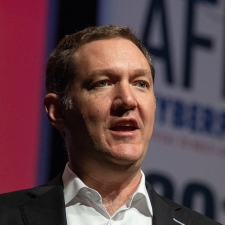Unity says restructure that saw mass layoffs is now complete as it posts Q1 2024 | Pocket Gamer.biz

Unity has its eyes on “accelerating revenue growth” as it says the company restructure that saw thousands of layoffs and office closures is now behind it.
The engine firm said its financial results for Q1 2024 were “in line with expectations”. Unity reported $460 million in net revenue of $460 million, marking an 8% decline year-over-year.
It put the drop in sales down to “portfolio choices” – it previously announced it would be limiting its Professional Services unit to a “few selected strategic engagements”, cutting cloud hosting costs and exiting the hardware components side of its multiplayer business.
Create Solutions revenue – from its engine division – rose 17% Y/Y to $133m due to growth in subscriptions and strategic partnerships. Grow Solutions revenue – its ads business – was down 4% Y/Y to $294m.
Overall, Unity reported $291m in losses for the quarter. This included $212m in restructuring costs and a $61m gain related to its convertible note repurchase. Without these charges, the company said net losses for Q1 2024 would have been $141m, down from $254m the year prior.
Runtime fee
In its risk-factor summary, Unity admitted that the runtime fee fiasco – which sparked an industry backlash, the departure of CEO John Riccitiello and a company-wide restructure with mass job losses – impacted revenue in the second half of 2023.
“We experienced a high volume of negative customer feedback including a boycott and a slowdown of signing new contracts and renewals as a result of these changes which we believe negatively impacted our Grow Solutions revenue in the second half of 2023,” the company stated.
In an earnings call, interim CEO Jim Whitehurst – who is taking on the role of executive chair when former Zynga COO Matthew Bromberg joins as the company’s new permanent CEO next week – claimed customers who had been “ruffled” by the runtime fee were now “feeling much more confident with us”.
“We’ve gone from the what and why of runtime fee to, I think, a recognition that the industry wants to make sure that we invest in the runtime,” said Whitehurst.
“And so, it’s a matter of how, and let’s kind of work through that. So, we’re having super productive conversations with our large customers.
“We had a phenomenal GDC, really, really great engagement across the board. So that also makes me feel good about our relationships with developers and where those are moving.”



